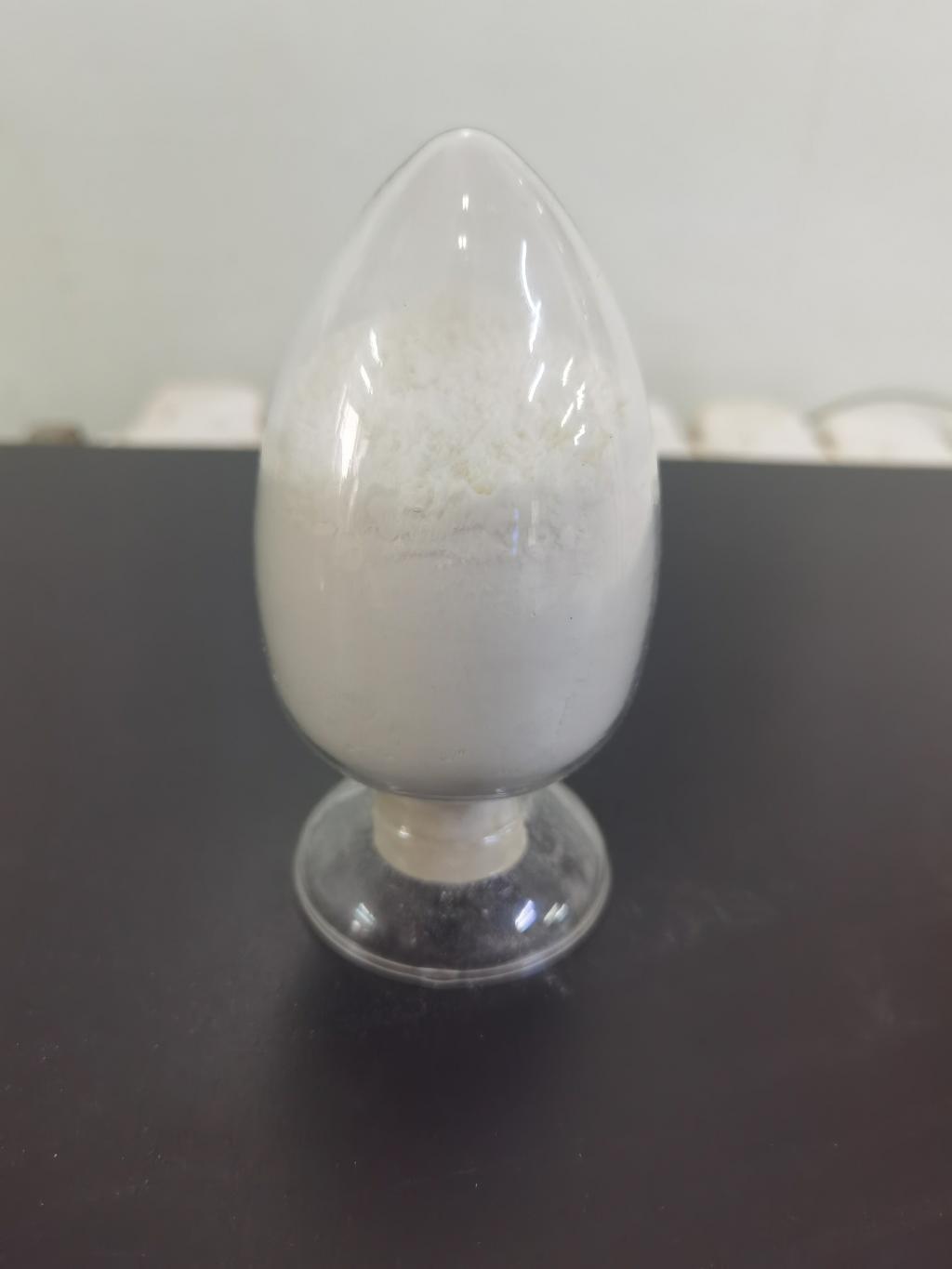
Harnessing ε-Polylysine Hydrochloride in Plant-Based Foods: Expanding its Reach
TIME:2023-12-26
In recent years, the culinary landscape has witnessed a profound shift towards plant-based diets, driven by concerns for health, sustainability, and ethical considerations. As the demand for plant-based foods continues to surge, the need for innovative solutions to enhance their quality and safety becomes paramount. Enter ε-polylysine hydrochloride, a natural antimicrobial agent derived from bacteria. This article explores the burgeoning relationship between ε-polylysine hydrochloride and plant-based foods, unraveling its applications, benefits, and the potential it holds for further elevating the plant-based culinary experience.
The Rise of Plant-Based Foods
1. A Paradigm Shift in Culinary Preferences
The surge in popularity of plant-based diets reflects a significant paradigm shift in culinary preferences. Driven by health-conscious consumers, environmental concerns, and ethical considerations, the plant-based movement has transcended niche markets to become a mainstream culinary trend.
2. The Challenge of Quality and Safety in Plant-Based Products
While the plant-based movement offers a plethora of options for those seeking alternatives to animal products, challenges arise in maintaining the quality and safety of plant-based foods. The absence of natural preservatives and the susceptibility of plant-derived ingredients to spoilage necessitate innovative solutions to ensure the longevity and safety of these products.
Introducing ε-Polylysine Hydrochloride: A Natural Preservative
1. Nature's Antimicrobial Ally
Derived from certain bacterial strains, ε-polylysine hydrochloride has gained recognition for its natural antimicrobial properties. With the ability to inhibit the growth of a broad spectrum of microorganisms, including bacteria and fungi, ε-polylysine hydrochloride serves as a natural preservative in the realm of food production.
2. Compatibility with Plant-Based Ingredients
One of the key advantages of ε-polylysine hydrochloride is its compatibility with plant-based ingredients. Unlike some traditional preservatives that may interact negatively with certain components, ε-polylysine hydrochloride seamlessly integrates into plant-based formulations, offering a versatile and effective solution for preservation.
Applications in Plant-Based Foods
1. Extending Shelf Life of Fresh Produce
Fresh fruits and vegetables, integral components of plant-based diets, are susceptible to spoilage due to microbial activity. ε-Polylysine hydrochloride can be applied to extend the shelf life of these perishable items, preserving their freshness and nutritional content for a more extended period.
2. Safeguarding Plant-Based Proteins
Protein-rich plant-based alternatives, such as tofu, tempeh, and plant-based meat substitutes, often face challenges related to spoilage and microbial contamination. ε-Polylysine hydrochloride acts as a safeguard, inhibiting the growth of bacteria and molds that could compromise the safety and quality of these protein sources.
3. Enhancing Safety in Plant-Based Dairy Alternatives
The growing market for plant-based dairy alternatives, including milk, yogurt, and cheese, demands rigorous safety measures. ε-Polylysine hydrochloride contributes to the safety of these products by preventing the proliferation of harmful microorganisms, ensuring that consumers can enjoy plant-based dairy alternatives with confidence.
Preservation Without Compromise: The Culinary Edge of ε-Polylysine Hydrochloride
1. Preserving Flavors and Textures
One of the challenges in the preservation of plant-based foods lies in maintaining their original flavors and textures. ε-Polylysine hydrochloride, with its selective antimicrobial action, allows for the preservation of these sensory attributes without compromising the essence of plant-based culinary creations.
2. Supporting Artisanal and Small-Scale Production
Many plant-based foods are crafted by artisanal producers and small-scale manufacturers who prioritize quality and authenticity. The introduction of ε-polylysine hydrochloride into plant-based recipes provides these producers with a natural and effective means of preserving their creations, extending their reach to a wider audience.
Navigating Challenges in the Plant-Based Culinary Landscape
1. Dosage Precision for Optimal Preservation
Determining the appropriate dosage of ε-polylysine hydrochloride is essential to achieve optimal preservation without adversely affecting the taste or nutritional value of plant-based foods. Collaborative efforts between food scientists and culinary experts are crucial to strike the right balance.
2. Addressing Consumer Perceptions
Introducing a novel preservative into plant-based foods may raise concerns among consumers who seek clean labels and minimal processing. Transparent communication about the natural origin and safety of ε-polylysine hydrochloride is vital to address these concerns and build trust among consumers.
Beyond Preservation: Potential Health Benefits
1. Contribution to Gut Health
The plant-based movement is closely associated with health and wellness, and the inclusion of ε-polylysine hydrochloride in plant-based foods may offer additional health benefits. By preserving the probiotic content of fermented plant-based products, ε-polylysine hydrochloride indirectly contributes to gut health, aligning with the holistic approach of plant-based diets.
2. Antimicrobial Properties and Food Safety
In a global food landscape where food safety is of paramount importance, the antimicrobial properties of ε-polylysine hydrochloride play a crucial role in ensuring the safety of plant-based foods. By inhibiting the growth of harmful microorganisms, it addresses concerns related to microbial contamination and spoilage.
Collaboration for Culinary Innovation
1. Culinary Scientists and Food Engineers
The integration of ε-polylysine hydrochloride into plant-based foods requires collaboration between culinary scientists and food engineers. Together, they can explore innovative applications, dosage precision, and the development of plant-based products that meet both culinary and safety standards.
2. Chef-Preservative Partnerships
Culinary artisans and chefs play a pivotal role in the plant-based culinary landscape. Collaborative partnerships between chefs and preservative experts can lead to the development of unique plant-based recipes that showcase the potential of ε-polylysine hydrochloride in preserving the integrity of culinary creations.
Conclusion: A New Chapter in Plant-Based Culinary Excellence
In the dynamic landscape of plant-based foods, the integration of ε-polylysine hydrochloride marks a new chapter in culinary innovation. As the world embraces plant-based diets for reasons ranging from health and sustainability to ethical considerations, the need for effective preservation solutions becomes increasingly evident.
The symbiotic relationship between ε-polylysine hydrochloride and plant-based foods expands the horizons of culinary possibilities. It presents an opportunity to not only address the challenges of preservation but also to elevate the sensory experience of plant-based creations. As consumers embark on a journey towards plant-based living, the collaboration between natural preservatives and plant-based ingredients paves the way for a future where culinary excellence and health-conscious choices seamlessly coexist.

 CONTACT
CONTACT




